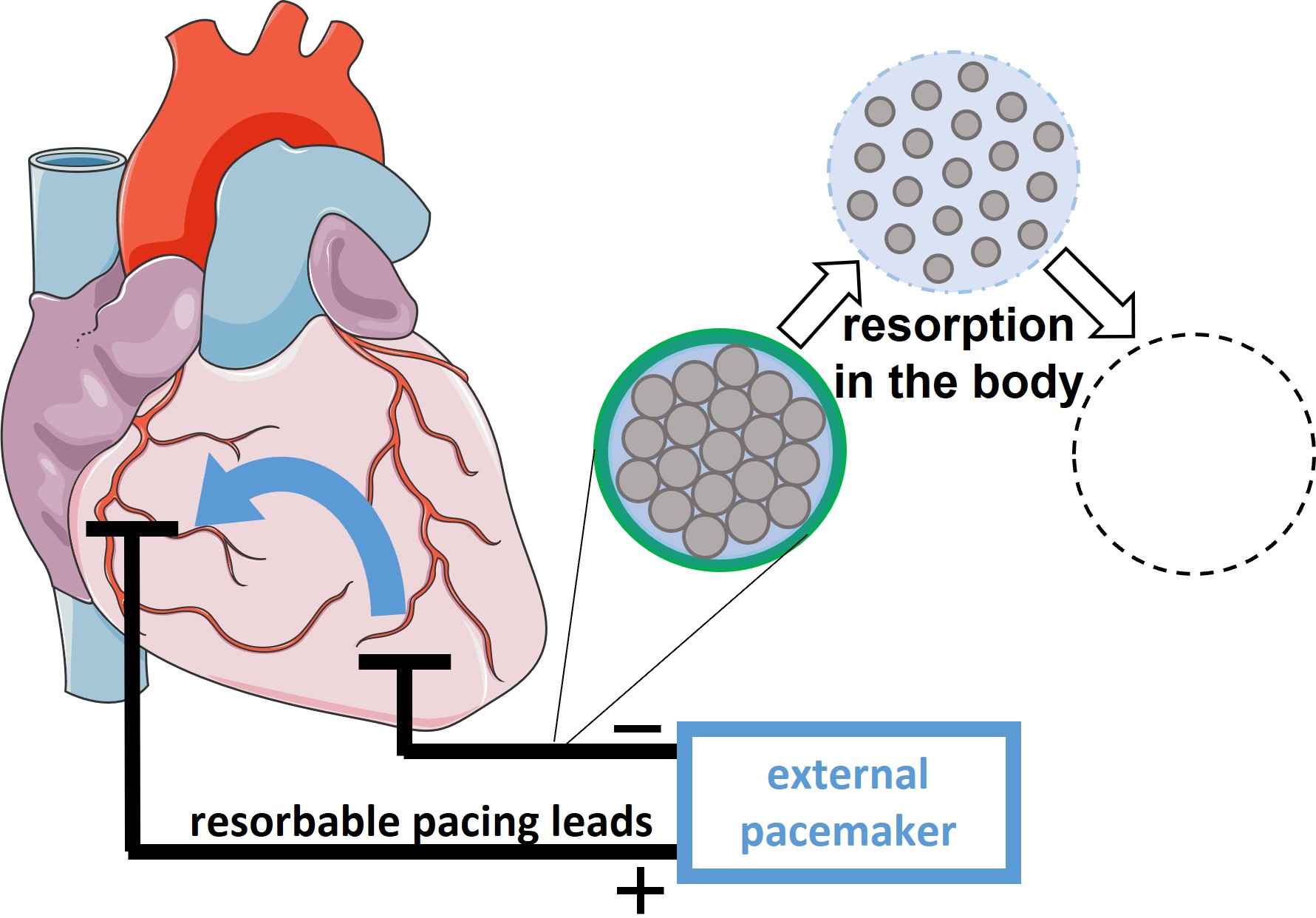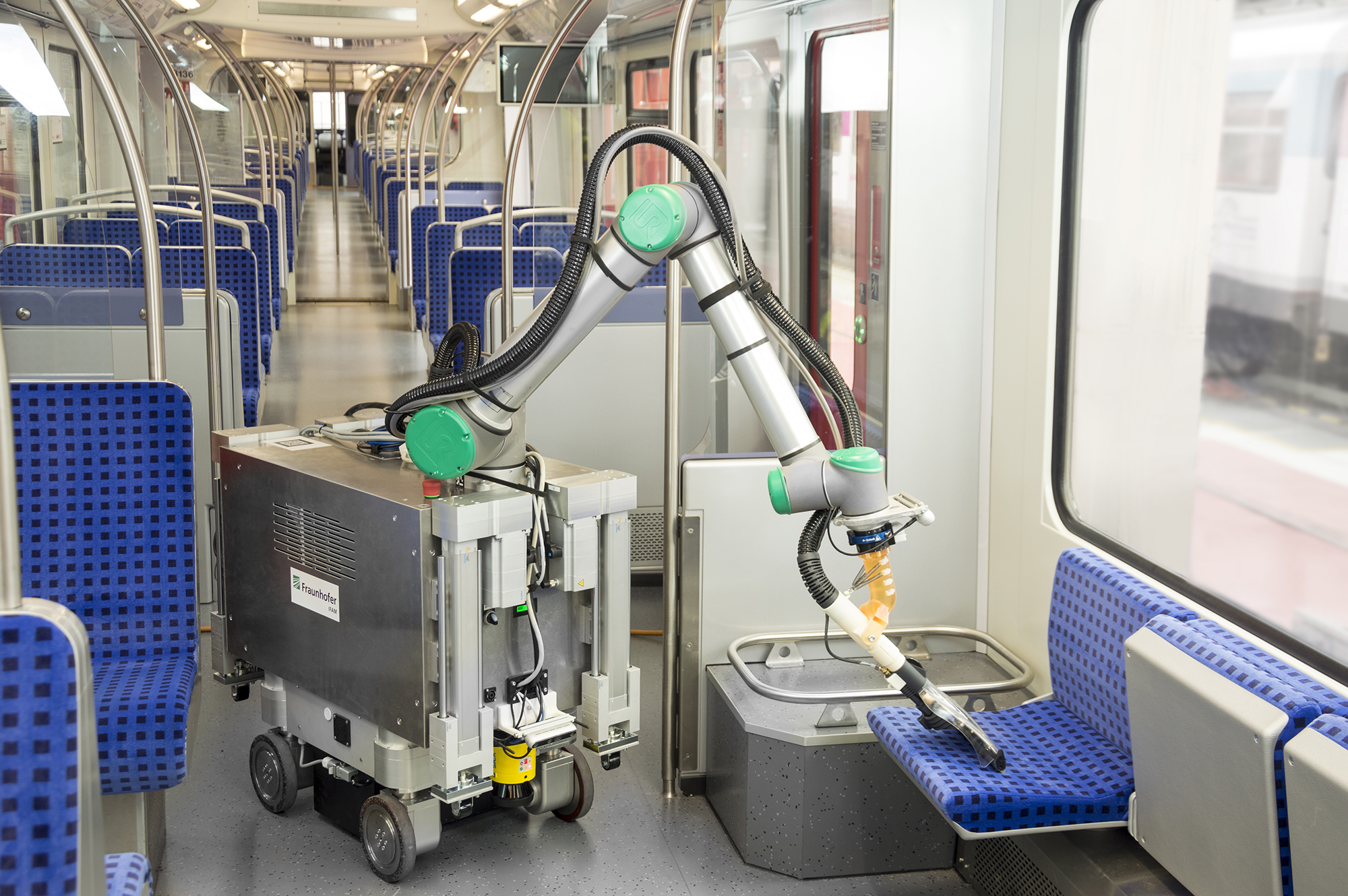Resorbable pacing leads to replace conventional leads

In the “Resorbable Molybdenum Temporary Cardiac Electrodes” project or short ReMoTe CarE, researchers of Fraunhofer IFAM together with the Faculty of Medicine Carl Gustav Carus, TU Dresden, are developing resorbable pacing leads. This novel approach can significantly reduce risk factors after cardiac surgery.
Postoperative cardiac arrhythmias are common after cardiac surgery. They are routinely treated with external pacemakers and temporary pacing leads that are prophylactically implanted at the time of surgery. This is inherently associated with several risks: Manually extracting conventional stainless steel pacing leads can result in complications as the wires can, in some cases, resist extraction due to tissue in-growth. However, if the leads are cut and left in the body, there is a risk of infection and migration. In case of migration, revision surgery may be required.
In the ReMoTe CarE project, which is funded by the Else Kröner Fresenius Center for Digital Health in Dresden, researchers are investigating a completely new approach: In the future, bioresorbable leads that can be left in the body and then disappear by resorption after a defined period are expected to replace conventional leads. This approach is based on the use of the metal molybdenum (Mo), which offers several advantages. Molybdenum degrades uniformly in the body and is biocompatible, as Fraunhofer IFAM and TU Dresden have demonstrated in the earlier QUA DEMOS project. Molybdenum also has high mechanical strength and good electrical conductivity. For use in bioresorbable pacing leads, it is coated with resorbable biopolymers to electrically insulate the leads from the surrounding tissue.
Fraunhofer IFAM is testing and optimizing the mechanical, electrical and degradation properties of the materials used. The institute is also responsible for manufacturing the demonstrators — strands of fine metal wires that are coated with biopolymers. The demonstrators are then tested in preclinical studies at the Faculty of Medicine at TU Dresden.
The objective is to avoid the complications associated with non-resorbable pacing leads. This would not only provide great relief to patients but also significantly relieve the burden on both healthcare professionals and the healthcare system.
 Fraunhofer Institute for Manufacturing Technology and Advanced Materials IFAM
Fraunhofer Institute for Manufacturing Technology and Advanced Materials IFAM
